The Church and the Market
Studies in Ethics and Economics
Series Editor: Samuel Gregg, Acton Institute
Advisory Board
Michael Novak, American Enterprise Institute, United States
Edward Younkins, Wheeling Jesuit University, United States
Manfred Spieker, University of Osnabrck, Germany
Jean-Yves Naudet, University of Aix-Marseilles, France
Maximilian Torres, University of Navarre, Spain
Rodger Charles, S. J., University of Oxford, England
Doug Bandow, Cato Institute, United States
Leonard Liggio, George Mason University, United States
Economics as a discipline cannot be detached from a historical background that was, it is increasingly recognized, religious in nature. Adam Ferguson and Adam Smith drew on the work of sixteenth- and seventeenth-century Spanish theologians, who strove to understand the process of exchange and trade in order to better address the moral dilemmas they saw arising from the spread of commerce in the New World. After a long period in which economics became detached from theology and ethics, many economists and theologians now see the benefit of studying economic realities in their full cultural, often religious, context. This new series, Studies in Ethics and Economics, provides an international forum for exploring the difficult theological and economic questions that arise in the pursuit of this objective.
Titles in the Series
Intelligence as a Principle of Public Economy / Del pensiero come principio deconomia publica, by Carlo Cattaneo
And Why Not?: The Human Person at the Heart of Business, by Franois Michelin
Faith and Liberty: The Economic Thought of the Late Scholastics, by Alejandro A. Chafuen
The Boundaries of Technique: Ordering Positive and Normative Concerns in Economic Research, by Andrew Yuengert
Within the Market Strife: American Catholic Economic Thought from Rerum Novarum to Vatican II, by Kevin E. Schmiesing
Natural Law: The Foundation of an Orderly Economic System, by Alberto M. Piedra
The Church and the Market: A Catholic Defense of the Free Economy, by Thomas E. Woods Jr.
The Church and the Market
A Catholic Defense of the Free Economy
Thomas E. Woods Jr.
LEXINGTON BOOKS
LanhamBoulderNew YorkLondon
Published by Lexington Books
An imprint of The Rowman & Littlefield Publishing Group, Inc.
4501 Forbes Boulevard, Suite 200, Lanham, Maryland 20706
www.rowman.com
Unit A, Whitacre Mews, 26-34 Stannary Street, London SE11 4AB
Copyright 2015 by Lexington Books
All rights reserved. No part of this book may be reproduced in any form or by any electronic or mechanical means, including information storage and retrieval systems, without written permission from the publisher, except by a reviewer who may quote passages in a review.
British Library Cataloguing in Publication Information Available
Library of Congress Cataloging-in-Publication Data
Library of Congress Control Number: 2014958377
ISBN 978-0-7391-8799-9 (cloth : alk. paper)
ISBN 978-0-7391-8800-2 (pbk. : alk. paper)
ISBN 978-0-7391-8801-9 (electronic)
 The paper used in this publication meets the minimum requirements of American National Standard for Information SciencesPermanence of Paper for Printed Library Materials, ANSI/NISO Z39.48-1992.
The paper used in this publication meets the minimum requirements of American National Standard for Information SciencesPermanence of Paper for Printed Library Materials, ANSI/NISO Z39.48-1992.
Printed in the United States of America
To my father, Thomas E. Woods Sr. (19511996)
Requiescat in pace
Contents
Acknowledgments
I am very happy to have the opportunity to acknowledge my indebtedness to the scholars and friends who have taught me so much over the years. I am profoundly grateful to David Gordon, Jeffrey Tucker, Guido Hlsmann, Peter Klein, Mateusz Machaj, Joseph T. Salerno, and Leonard Liggio for reading portions or the entirety of the manuscript and offering their valuable insights. I have also benefited from conversations with Jeffrey Herbener and Shawn Ritenour of Grove City College, and Christopher Westley of Jacksonville State University. Responsibility for any errors of fact or interpretation is, of course, solely my own.
I am also grateful to Thomas McArdle for urging me to write this book. I had received e-mail correspondence from time to time from people who had read my economic articles and hoped I might write a book on the subject, but it was only when Tom implored me that I gave the matter serious consideration. Were it not for him, this book would not have been written.
I feel compelled to make mention of the inspiration I have derived from the personal and professional example of Murray N. Rothbard (19261995), one of the great economists of the twentieth century and a scholar whose learning and productivity, in several different disciplines, was staggering. I consider myself very lucky to have had the chance to meet Murray a number of times in the early 1990s, and to have had the opportunity for lengthy conversations with him in person and on the telephone. (While still a kid, I felt like a big shot when he insisted I call him Murray.) Murray refused to compromise on principle even though to do so would have meant winning the prestigious academic posts for which lesser men sell their souls. He threw himself into his work with gusto and joy, and could produce more scholarly output in a few years than most professors do in a lifetime. Murrays example of what one man can do has inspired me in my own work.
Thanks are also due to those periodicals that have permitted me to use material I originally wrote for their pages. Ideas on Liberty, the monthly periodical of the Foundation for Economic Education, has kindly granted me the use of relevant portions of A Myth Shattered: Mises, Hayek, and the Industrial Revolution (November 2001), The Economics of Infantilism (June 2002), Race, Inequality, and the Market (October 2002), Why Wages Used to Be So Low (June 2003), and The Fallacies of Distributism (November 2003). A portion of chapter 1 originally appeared on SeattleCatholic.com as Economics and Profit: A Final Word. A substantial portion of chapter 2 appeared as Catholic Social Teaching and Economic Law in the JuneSeptember 2003 issue of the Journal des Economistes et des Etudes Humaines (France). Another portion of chapter 2 originally appeared in The Free Market as The Non-Crime of Price-Gouging. A portion of chapter 3 appeared as Money and Morality: The Christian Moral Tradition and the Best Monetary Regime in Religion & Liberty, the bimonthly publication of the Acton Institute, and a portion of chapter 6 appeared on Mises.org as Bring Back the Guild System? Throughout the text I have drawn on my article Cobden on Freedom, Peace, and Trade, which appeared in Human Rights Review in OctoberDecember 2003.
I also wish to thank Doreen Munna, Dolores Perillo, and Marilyn Ventiere of my colleges interlibrary loan department. Likewise, I extend my thanks to the staff of Lexington Books, with whom it has been a pleasure to work.
Above all, I wish to thank my wife, who was her usual encouraging self during this project, even though we were expecting our first child during most of that time. I am happy to say I married the woman Id always wanted to marry but wasnt sure really existed.
This book is dedicated to my father, the late Thomas E. Woods, Sr., whose hard work and sacrifice (along with those of my mother, of course!) made it possible for me to be where I am today. I will never forget being seven years old and being terribly upset about some trivial thing. After Dad had sat me down and put everything into perspective, he told me that I was going to go to Harvard University someday, and that, well, he would pay for it somehow. In December 1989 his prediction came true when the Early Action letter arrived.

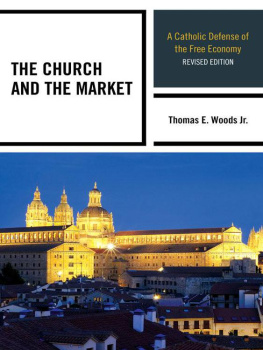

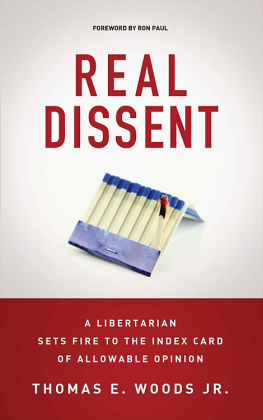
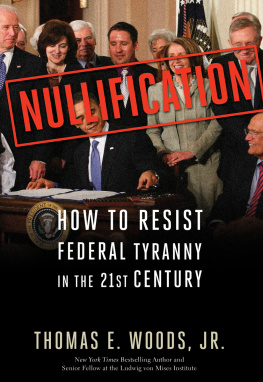


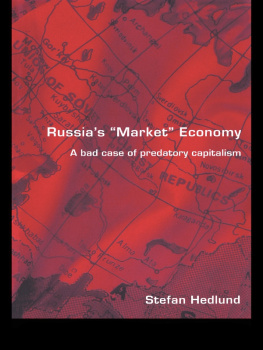
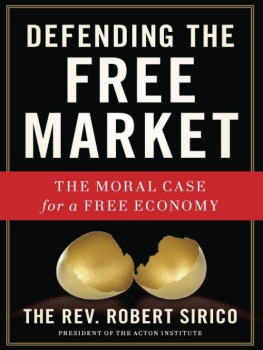
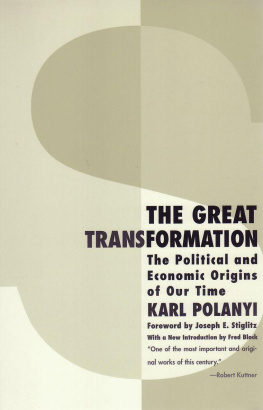
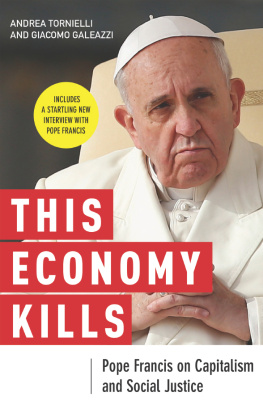
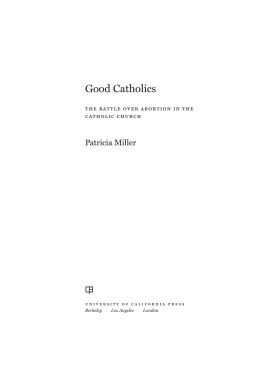
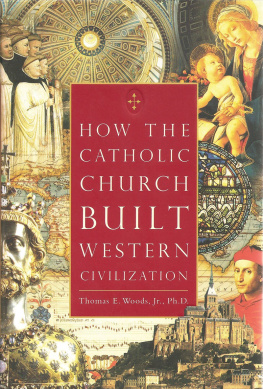

 The paper used in this publication meets the minimum requirements of American National Standard for Information SciencesPermanence of Paper for Printed Library Materials, ANSI/NISO Z39.48-1992.
The paper used in this publication meets the minimum requirements of American National Standard for Information SciencesPermanence of Paper for Printed Library Materials, ANSI/NISO Z39.48-1992.